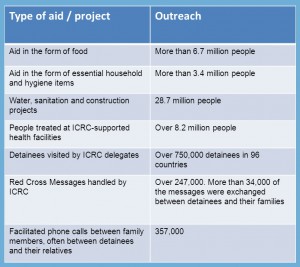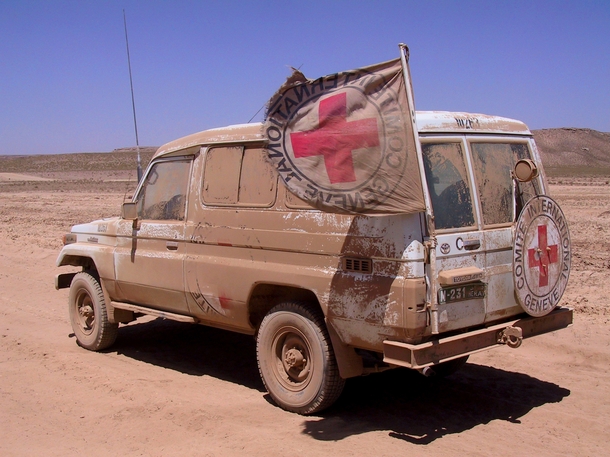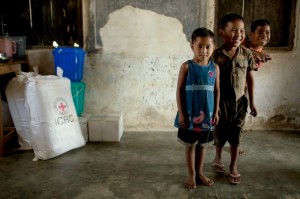ICRC visited over 750,000 detainees in 96 countries, handled over 247,000 Red Cross messages last year, enabling family members separated by hostilities and other crises to restore contact
War shatters lives, separates families and destroys livelihoods. Civilians bear the brunt, trapped between fighters who fail to respect the rules of combat. Protecting and assisting the victims of war is the role of the ICRC. A neutral, independent and impartial humanitarian organization, the ICRC gives help to everyone without discrimination, regardless of politics, race or religion.
 In 2013, more than 6.7 million people received aid in the form of food and more than 3.4 million received aid in the form of essential household and hygiene items from the ICRC, revealed the ICRC Annual Report 2013, which was released in Geneva last week. Apart from this, the ICRC’s water, sanitation and construction projects benefited some 28.7 million people, the majority of whom were women and children. Over 8.2 million patients received treatment at ICRC-supported health facilities.
In 2013, more than 6.7 million people received aid in the form of food and more than 3.4 million received aid in the form of essential household and hygiene items from the ICRC, revealed the ICRC Annual Report 2013, which was released in Geneva last week. Apart from this, the ICRC’s water, sanitation and construction projects benefited some 28.7 million people, the majority of whom were women and children. Over 8.2 million patients received treatment at ICRC-supported health facilities.
The organization’s delegates visited over 750,000 detainees in 96 countries, including detainees under the jurisdiction of international courts and tribunals. The ICRC handled over 247,000 Red Cross messages, enabling family members separated by hostilities and other crises to restore contact, with more than 34,000 of the messages being exchanged between detainees and their families, and facilitated over 357,000 phone calls between family members, often between detainees and their relatives.
The Annual Report of the ICRC is an account of field activities conducted out of 80 delegations worldwide. The activities are part of the organization’s mandate to protect the lives and dignity of victims of war and to promote respect for International Humanitarian Law. The ICRC’s Annual Report 2013 describes the harm that armed conflicts inflict on populations around the world, and what the organization is doing to protect and assist them.
“The annual report is an opportunity to tell donors and general public where in the implementation of ICRC objectives we find ourselves and what activities and achievements we are accountable for in 2013,” said Mr Maurer while introducing the Annual Report 2013 to journalists at a press conference in Geneva on 14 May 2014.
Here is a snapshot of activities in the top seven operations of the ICRC last year:
Syria: The ICRC worked to ensure that clean water was available for 17 million people
Afghanistan: Assisted more than 94,000 patients in seven physical rehabilitation centres
Mali: Distributed nearly 28,000 tonnes of food to over 885,600 people
The Democratic Republic of the Congo: Helped more than 1,000 children rejoin their families in the Democratic Republic of the Congo or abroad
Somalia: Distributed emergency food rations for 260,000 people and helped 2,600 people receive vocational training
Iraq: Visited almost 40,000 people held in over 70 places of detention in Iraq
South Sudan: Performed operations on around 1,400 patients in eight medical facilities across the country
To watch ICRC President Peter Maurer address the press conference click here.
For more information, check our annual report 2013 here.
To view infographic on the ICRC’s activities in its top seven operations, click here.
ICRC New Delhi



